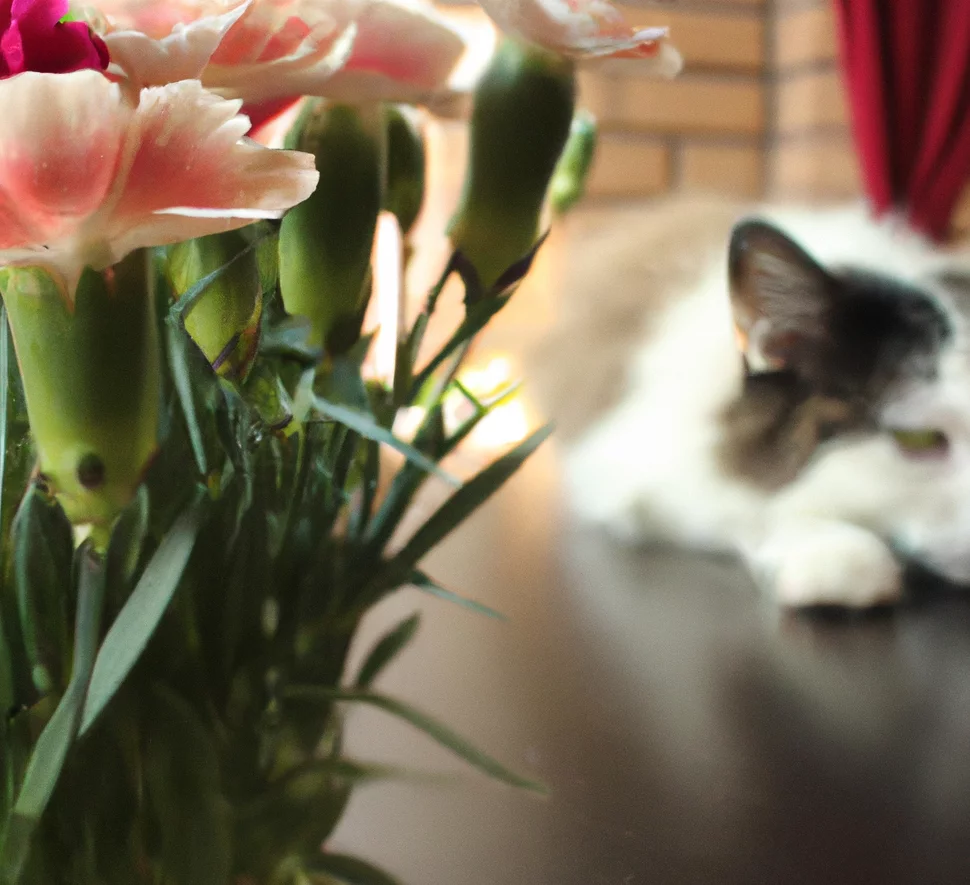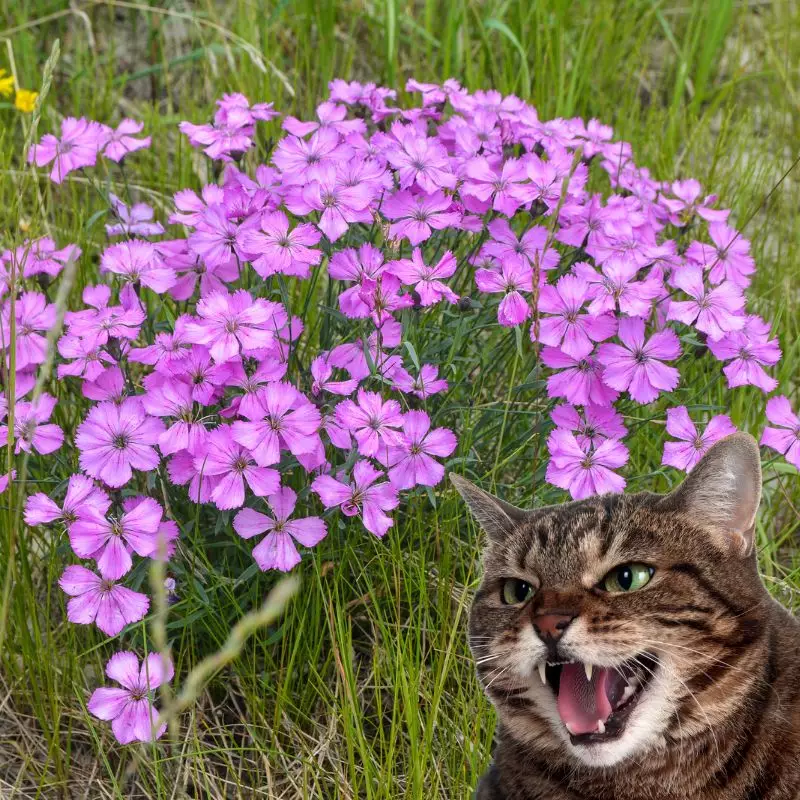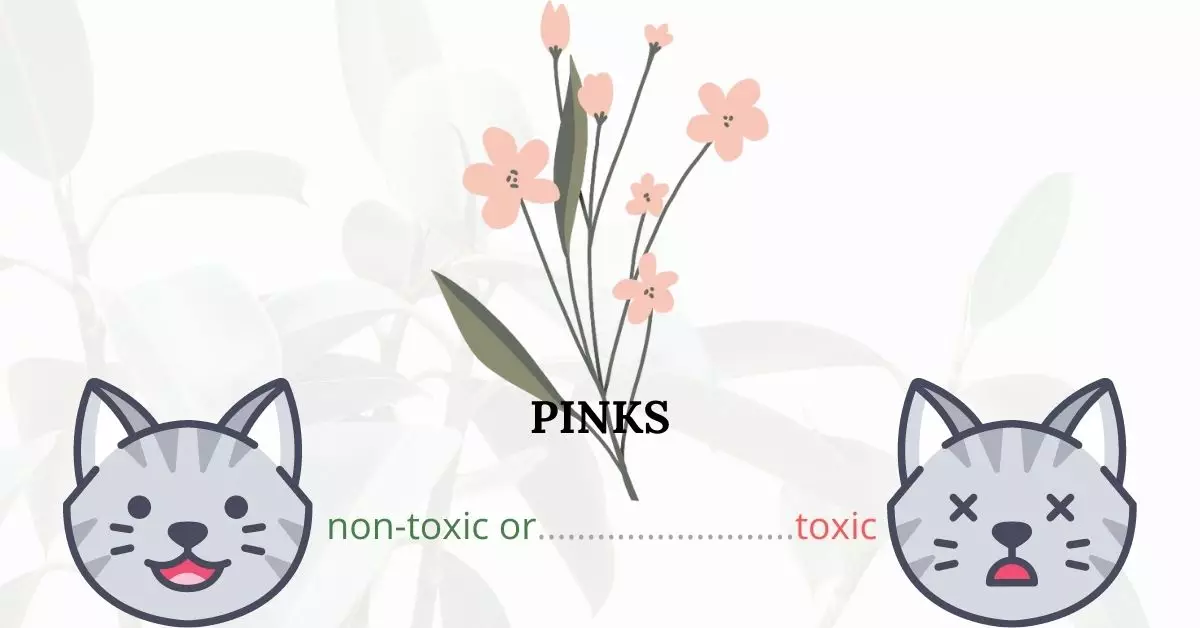Pinks, often referred to as carnations, are indeed toxic to cats. When cats come into contact with these plants, they might exhibit symptoms like reddening, swelling, or irritation around their lips and mouth due to the sap found in pinks, which can induce dermatitis-like reactions. Furthermore, if ingested, pinks can cause gastrointestinal distress, including vomiting and diarrhea in cats. Fortunately, the symptoms linked with pink poisoning in cats are typically short-lived, persisting for only a few hours.
This article has been meticulously crafted in collaboration with a team of experienced DVMs (doctors of veterinary medicine). With their invaluable insights, we strive to present the most accurate and timely information about the potential hazards associated with various plants, particularly pinks, and their effects on feline health. For thoroughness and credibility, we have also consulted high-authority websites, including ASPCA and PetMD, to reinforce our findings on each plant we discuss.
Clinical Signs of Pinks Poisoning in Cats

When cats come into contact with, inhale the aroma of, or ingest parts of the Pinks plant, certain clinical symptoms manifest, which are indicative of their toxic reaction:
- Vomiting: This is one of the primary reactions when a cat ingests parts of the Pinks plant. The toxic compounds present in Pinks may irritate the feline’s stomach lining, leading to this symptom as the body tries to expel the ingested toxins.
- Diarrhea: When consumed, the toxins from Pinks can disrupt the normal functioning of a cat’s gastrointestinal tract. This leads to diarrhea as the body attempts to flush out the toxic agents.
- Dermatitis: If a cat’s skin comes into direct contact with the sap from the Pinks plant, it can cause dermatitis-like reactions. The sap contains irritants which can lead to redness, itching, and inflammation of the skin. Additionally, if a cat has smelled or rubbed against the plant, the irritants from the sap might affect sensitive areas like their nose or mouth.
While these symptoms stem from the cat’s interaction with Pinks, they are typically mild and short-lived. Nevertheless, it’s essential for cat owners to be vigilant and consult a veterinarian if their pet displays any of these signs after exposure to the plant.
First Aid and Treatment of Pinks Poisoning in Cats

Generally, the cat’s body can eliminate the toxins from pinks on its own. Toxins from pinks can be easily removed from a cat’s system by vomiting them out and passing the digested particles through the feces.
Nonetheless, your cat should be taken to the vet to be on the safe side as inducing vomit and administering IV fluids may be needed. Anti-diarrhea and anti-vomiting medication may also be prescribed by the veterinarian. If your cat suffers from dermatitis, a medicated shampoo for skin irritation may be prescribed by the vet.
Recovery from Pinks Poisoning in Cats

As long as your cat is not exposed to pinks again, he or she will be able to recover completely in a matter of hours. Your veterinarian will most likely recommend that you encourage your feline companion to drink more water than usual in order to further clear the toxin from the body. After a few hours, your cat’s activities should return to normal.
Prevention of Pinks Poisoning in Cats
To prevent your cat from exposure to pinks, avoid bringing this plant into your home. If pinks are known to be growing in your area, limit your cat’s outdoor activities. Keep them entertained and occupied by utilizing a playpen or cat house.
If you love plants but have cats at home, check out these lists:





